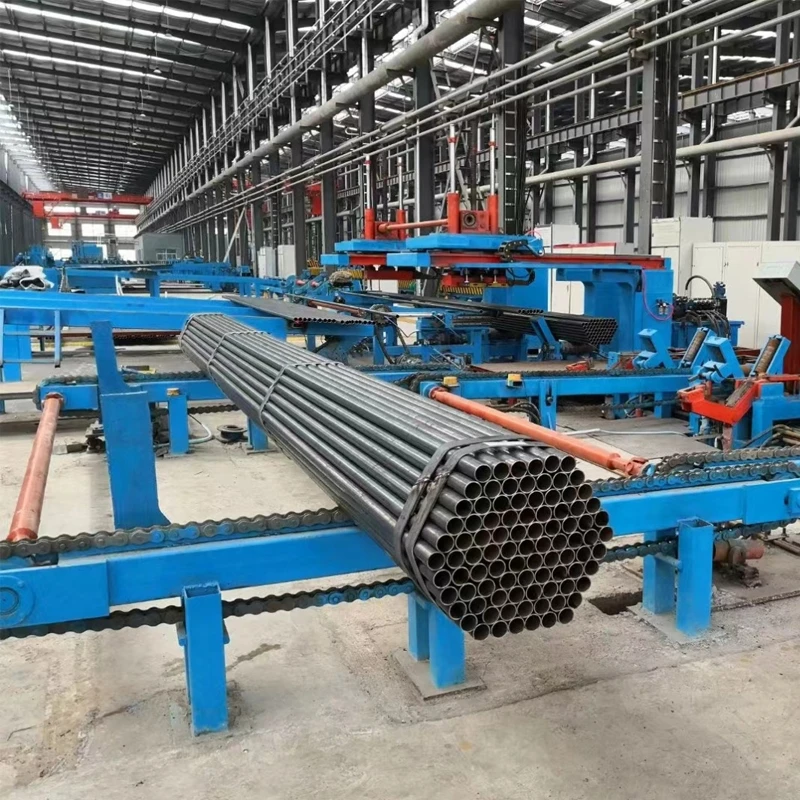CNC Roll Forming Machines for Efficient Metal Processing Solutions
Understanding CNC Roll Forming Machines A Key to Modern Manufacturing
CNC roll forming machines have revolutionized the manufacturing industry by providing precision and efficiency in the production of metal profiles. These machines, which employ Computer Numerical Control (CNC) technology, are pivotal in various sectors, including construction, automotive, and appliance manufacturing. In this article, we will explore the functionality, advantages, and applications of CNC roll forming machines.
What is a CNC Roll Forming Machine?
A CNC roll forming machine is an automated system that converts flat metal sheets into specific profiles through a series of rollers. The process involves feeding the metal through a set of rollers that gradually reshape it into the desired form. Unlike traditional methods, CNC roll forming allows for high-speed operations and intricate design capabilities, making it ideal for the production of consistent, high-quality parts.
CNC technology enables these machines to be programmed with precise specifications, allowing for intricate designs to be easily replicated. This automation significantly reduces human error, increases production speed, and maintains uniformity throughout the manufacturing process.
The Functionality of CNC Roll Forming Machines
The basic components of a CNC roll forming machine include uncoilers, levelers, roll stations, and shears. The process typically begins with an uncoiler that feeds the flat metal into the machine. Once the metal is leveled, it passes through a series of rollers where it is gradually shaped into the desired profile. Each roller station is designed to perform a specific bending or shaping function.
The CNC control system plays a crucial role in ensuring that the machine operates according to precise measurements. Operators can input specifications such as length, thickness, and profile shape into the system, allowing for quick changes between different productions. This adaptability is one of the key advantages of using CNC roll forming machines.
Advantages of CNC Roll Forming Machines
1. Precision and Consistency CNC machines are known for their ability to produce parts with high precision. This consistency is critical for industries where tolerances are tight, such as in aerospace and automotive manufacturing.
cnc roll forming machine

2. Efficiency The high-speed nature of CNC roll forming minimizes production times. Once set up, these machines can operate continuously, producing thousands of parts in a short period.
3. Cost-Effectiveness Although the initial investment in CNC technology may be higher, the long-term savings in labor and material costs often outweigh the initial capital. Less waste and streamlined operations contribute to significant cost reductions.
4. Flexibility CNC roll forming machines can be reprogrammed for different products quickly. This flexibility is particularly useful for manufacturers who need to adapt to changing market demands or custom orders.
5. Quality Control The automation of CNC technology ensures that each part produced meets strict quality standards. This reduces the likelihood of defects and the need for extensive rework.
Applications of CNC Roll Forming Machines
CNC roll forming machines have a wide array of applications across different industries. In the construction sector, they are used to create roofing and wall panels, gutters, and other building materials. In the automotive industry, they manufacture components like door frames, chassis parts, and structural reinforcements. Additionally, appliance manufacturers utilize CNC roll forming for products such as metal cabinets and heat exchangers.
The versatility of CNC roll forming machines also allows them to be used in creating specialized components for niche markets, including signage, furniture, and electrical panels.
Conclusion
CNC roll forming machines have undoubtedly changed the landscape of modern manufacturing. Their precision, efficiency, and adaptability make them an invaluable tool for various industries. As technology continues to evolve, we can expect further innovations in CNC roll forming that will enhance production capabilities and open new avenues for design and manufacturing. In a world increasingly driven by automation, CNC roll forming machines stand at the forefront, shaping the future of production methods.
-
High Frequency Straight Seam Welded Pipe Production Line|BzZhou Xinghua|Precision Welding&EfficiencyNewsJul.30,2025
-
High Frequency Straight Seam Welded Pipe Production Line - BzZhou Xinghua|Precision Engineering&EfficiencyNewsJul.30,2025
-
High-Frequency Straight Seam Welded Pipe Production Line-BzZhou Xinghua Machinery Equipment Manufacturing Co., LTD.NewsJul.30,2025
-
High-Frequency Straight Seam Welded Pipe Production Line-BzZhou Xinghua Machinery Equipment Manufacturing Co., LTD.|Precision Manufacturing, High EfficiencyNewsJul.30,2025
-
High Frequency Straight Seam Welded Pipe Production Line-BzZhou Xinghua Machinery Equipment Manufacturing Co., LTD.|Precision Steel Pipe Manufacturing&Industrial EfficiencyNewsJul.29,2025
-
High-Frequency Straight Seam Welded Pipe Production Line-BzZhou Xinghua Machinery Equipment Manufacturing Co., LTD.|Precision Steel Pipe Manufacturing&Industrial EfficiencyNewsJul.29,2025


